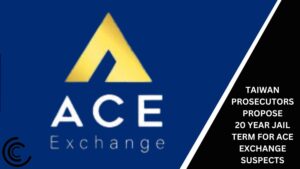Key takeaways:
- The NYAG has filed motions to dismiss the $3B fraud lawsuit against DCG and its CEO. They contend that the accusations made against them are “baseless innuendo.”
- Genesis had previously consented to a separate settlement. DCG has also submitted an objection to the settlement in the interim.
The New York Attorney General’s Office (NYAG) has filed motions to dismiss the $3 billion fraud lawsuit against Digital Currency Group (DCG) and its CEO, Barry Silbert. They contend that the accusations made against them are “baseless innuendo.”
The action was filed by the NYAG in October 2023 in response to claims that clients were deceived by DCG and its affiliate Genesis Capital regarding the dangers associated with the Gemini Earn program, resulting in $3 billion in damages for them.
Genesis had previously consented to a separate settlement. DCG has also submitted an objection to the settlement in the interim.
The DCG has flatly refuted the NYAG’s accusations, characterizing them as unfounded and devoid of compelling proof. The business maintained that it supported Genesis Capital in “good faith,” with the help of wise counsel from respectable experts and consultants. As stated in the report:
“The allegations are a thin web of baseless innuendo, blatant mischaracterizations, and unsupported conclusory statements.”
In defense, DCG argues that the accusations are an idiotic attempt by the NYAG to assign blame for consumer losses caused by events outside of the company’s control.
The corporation claimed that by contributing hundreds of millions of dollars to Genesis Capital before declaring bankruptcy, it went above and above what was required.
The legal documents describe the nature of the interactions between DCG and Genesis Capital, including retweets and remarks judged too ambiguous to qualify as fraud. The firm further contested the Martin Act of New York’s applicability to its operations, claiming that the law does not support the NYAG’s position.
The central claim of Silbert’s defense is that he acted with no fraudulent intent and was totally devoted to helping Genesis get through the difficulties facing the cryptocurrency sector in 2022.
The defense attacked the NYAG for taking a “kitchen-sink” strategy, claiming that Silbert was unfairly grouped with other defendants and that the prosecution’s case was founded on inappropriate group pleading. As stated in the document:
“Mr. Silbert is several steps removed from the alleged fraud, yet the Amended Complaint seeks to hold him personally liable and permanently bar him from the securities industry.”
Moreover, it questioned the NYAG’s reliance on excerpts from Silbert’s conversations that, when taken into account in their entirety, are said to show his continuous faith in Genesis’ financial stability.
Silbert’s actions are emphasized as proof of his conviction in the company’s viability and his competent stewardship as CEO, including granting a $1.1 billion promissory note to Genesis.
The defense’s main point of contention against the charges that the firms misled investors is that he and DCG had nothing to do with Genesis’s statement to investors. DCG did not think those claims were fake, the defense continued.
Silbert’s counsel also raises procedural objections, pointing out that the NYAG moved forward with the lawsuit without first hearing Silbert’s testimony, which was postponed because of his child’s health problems. Silbert’s defense argues that this action highlights the NYAG’s haste and disdain for a thorough inquiry.










